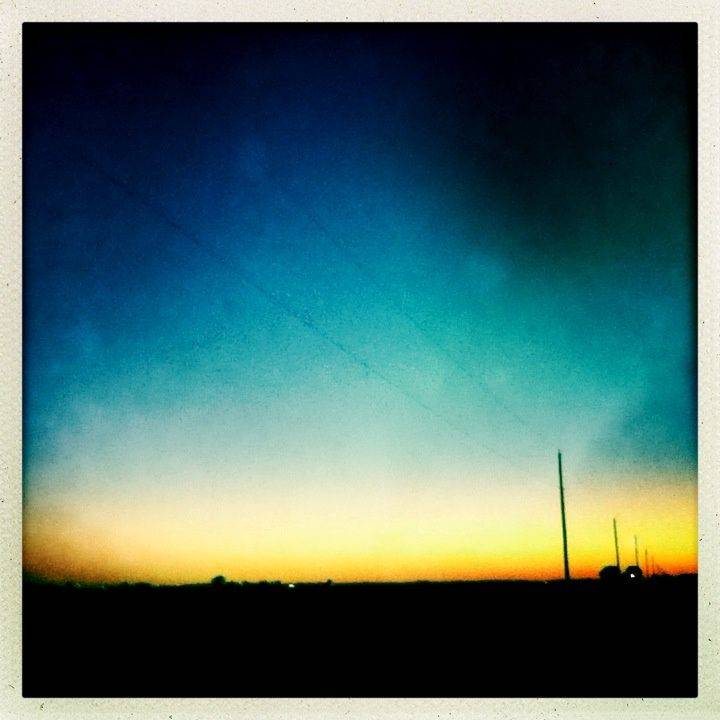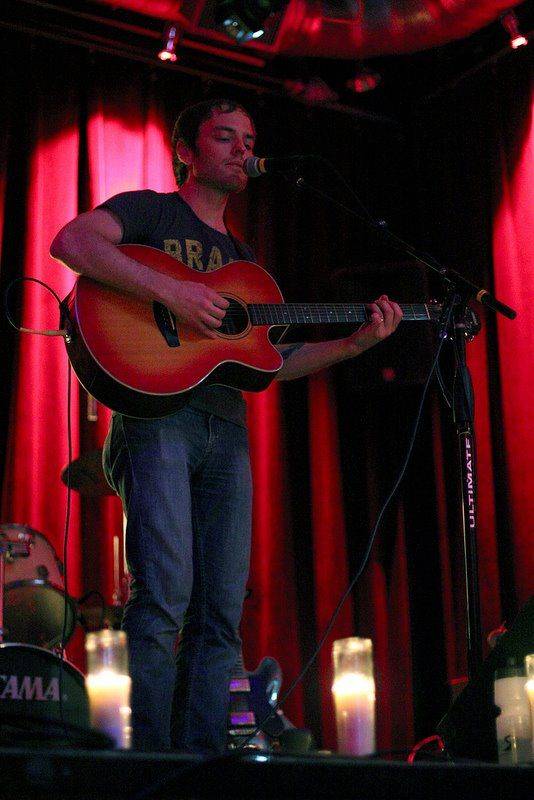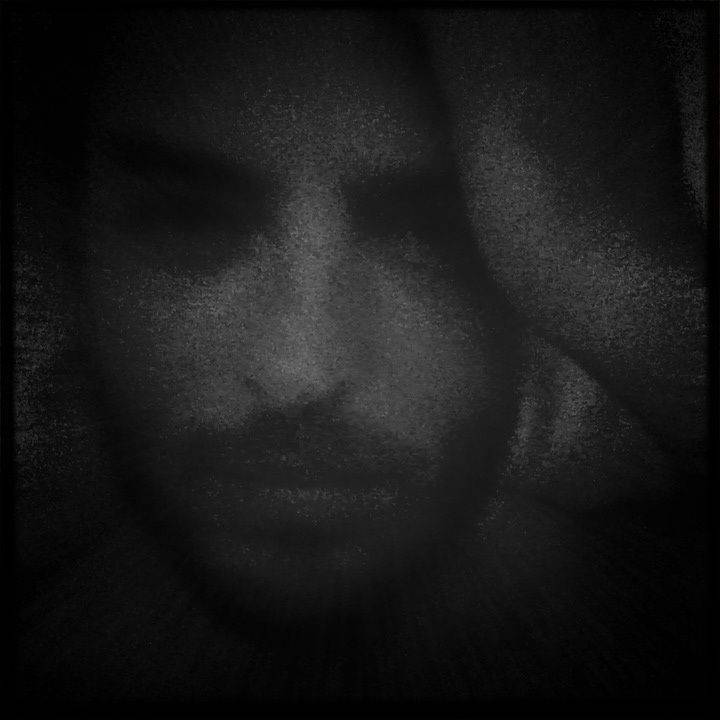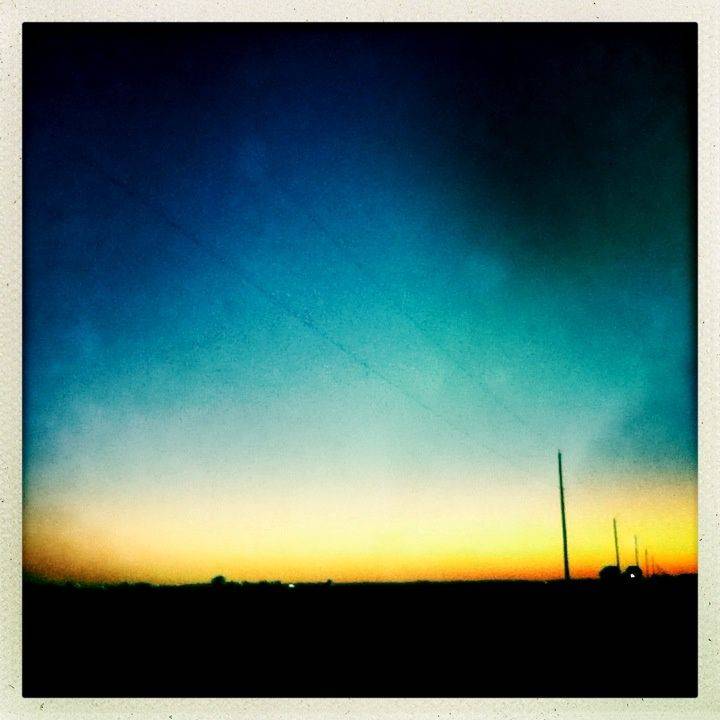
I spoke with former Evil Tents musician John Isberg earlier this month. We talked about his new EP, The Last Picture Show, and his mysterious record release show. Isberg, aka Tigerbeat, has been a musician in this area for quite a while, and he’s just come out of a trying year, so this new record should prove to be a worthwhile listen.
Smile Politely: So Tigerbeat is your solo project. And you started Evil Tents, right?
John Isberg: I started Evil Tents back in 2011 (I think) with Nathan Westerman.
I got “Evil Tents” from a game of Bananagrams and thought it was the worst name ever, so I chose that name. I started it as a French pop/acoustic kinda thing that transitioned into this shoegazey, nighttime driving kinda folky/rock thing. I guess Isaac [Arms] would call it “dream pop”.
Over time, I met Isaac Arms and he joined on bass. We played a few shows together and so we moved from acoustic guitar/drums to acoustic guitar/drums/bass. I asked a friend of mine, Chris Broach, (Braid, The Firebird Band) to come down and play electric guitar for a show, so he came down. After that show, I knew I wanted to have electric guitar as I loved the depth it added, so Aron Stromberg (who opened that show) joined on electric guitar. We recorded the main tracks over two days with Caleb Means (New Ruins, Wicked Walls); mixed and mastered it on our own (well, at least Aron did) in 30 days and put out The Night Air on The Midway full-length in 2012 and played out a lot; did Pygmalion twice which was pretty sweet.
Over time, we kind of fell apart — either through a lot of our own issues or wanting to get into something else. Isaac was doing Withershins; Aron wanted to do solo music. So it fell down to Nathan and [me] and I think we both needed a break.

SP: What did you do with that break?
Isberg: I had a lot of craziness happening in my life so I fell away from music for awhile. I kept writing but didn’t play out anymore and felt pretty lost. I could go on about some of the craziness that has happened in the last year, but I don’t think people would really believe it. Some of it was my fault and some of it was just beyond what you could make up. Suffice it to say that I fell back into music to escape a lot of the things that were going on in my life and feel safe.
I was jamming with Michael Hicks and Denton Hird from Year of the Bobcat with Nathan Westerman on the drums. We wrote a lot of music but Denton and Michael were both playing in another band and my schedule was pretty tight, so it was very hard to get anything moving forward at the time. I would record a lot of little demos on my own in my kitchen late at night and just post little clips online. Nothing much and all pretty lo-fi. One of these demos, “Rantoul”, became the thing that got me back into wanting to pursue music again. I played it for Aron and he kept saying that he really liked the song. I respect his opinion a lot and so it became the motivation to want to do a record again.
SP: Sometimes you just have to ride someone else’s confidence in you until you catch it yourself.
What is Tigerbeat then?
Isberg: Tigerbeat is me, but I’ve started jamming with other people. Rebecca Rego (Rebecca Rego and the Trainmen) has been jamming with me, and her drummer, Matt [Yeates], is fantastic. We went over the songs and it was cool to be able to hear them live. I saw her play a set at Buvon’s and really liked her energy. We started talking about playing together and that’s been good to do. It’s nice to have some new energy with the music.
SP: Sounds great! So why a solo recording?
Isberg: I knew that it was probably going to have to be mostly me on the record. I had almost no time to practice with anyone or teach people the songs. I was improving on my own through the demos that I was recording, so I figured I could probably do another record by myself. I didn’t have a band and I wasn’t really looking for one at the time. There was just no time to start one so I figured I would do a solo album because I missed music so much.
I talked to Michael Hicks about doing the album with me. I knew he had a studio and we worked together towards the end of Evil Tents. (He joined on bass to do The Lemonheads at The [Great] Cover Up 2013). We started in the summer at his studio (Studio M) with a demo song called “The Last Picture Show”. I liked working with Michael because he’s pretty chill, a good guy to talk to, and helpful with reigning in some of my crazier ideas. He was always pretty patient and fun to joke with.
It’s funny making a solo album compared to a band record because you just aren’t able to kick back with your band mates after a good track or session when it’s just you. So in many ways, [Michael] became the other part of the band and the record. (He played bass on “Danville Commercial News”). He’s got a good ear and is helpful in translating ideas to the mixing and mastering process.
SP: What can we expect from the Tigerbeat EP?
Isberg: I knew that I wanted a driving, lush, night driving sound but also very spare. One of the things I learned from Night Air was how important space is to a record. That was one of the things I wanted with this one… to create a lot of space; let the songs breathe and become more organic. That way you can hear the decay of a guitar, the keys ringing out.
I also knew that I wanted to have everything be my voice on the record. I used auto-tune on Night Air as a bit of a weirdo thing at the time. After the record came out, though, I felt like it overshadowed the songs that were on the record, and I didn’t want that to get in the way of someone being able to hear the song this time around. Sometimes it was a bit difficult because I’ve always had a thing with my voice, trying to bury it under reverb or something, but this record it was good to get used to hearing it more prominently. I took some chances with some of the performances, letting my voice break up a bit; be raw and be comfortable with how exposed it became.
I did use drum loops, so there’s an artificial element to the record, but I figured since I’ve used sequencers to write beats before, I didn’t see any reason not to use loops. I’m not a drummer and didn’t have time to work with anyone, so that’s that. I figure I just wanted a foundation to build the songs on, and it’s funny because I have about 20 songs (not on the record) that have the same beat, so I kinda laugh and look for the one that moves me most.
SP: Where did you get the name for the album?
Isberg: Well, I ripped off the Bogdanovich film for inspiration (and the title) but I love that movie and a lot of the themes of the movie. Sex, dying towns, Jeff Bridges. Anyways, I have this thing for small towns like Rantoul and Danville. I love old downtowns; the old building facades and the emptiness of it.
This record ended up being the most personal record I’ve made. In the past I’ve had songs like “Je Ne Sais Quoi” or “Next Wave” that I don’t have much connection to, but the songs on this had a lot of personal meaning to me. I went through a very dark period and there’s a lot in the record that speaks directly to some of the things that have happened over the past year. Some of it sounds uplifting but is incredibly dark. A song like “Good Luck Tonight” seems positive but is really about one of the strangest, worst nights I’ve experienced, minus the Roxy Music-inspired ending. So I suppose there is this strangeness to the record that I like. Like the name Tigerbeat is that ’80s pop teen magazine, and I thought it’d be funny to have this very dark record by a band called Tigerbeat. So that’s where the name comes from.
SP: What/who inspires you, personally? How about musically? Or do you separate music and personal influence…
Isberg: Well, musically, it comes from a lot of different places. Some of the inspirations don’t show up on the record but I’d say that Fleetwood Mac was a huge inspiration. One of the songs that didn’t end up on the record was very Lindsey Buckingham inspired (“New York Mind”). I listened to Beach House, Father John Misty, Lord Huron, and a few others over the last year. Mazzy Star.
As far as sound and performance, I’d say the Byrds, Neil Young, Leonard Cohen, Johnny Marr of the Smiths, Tom Petty, Roxy Music. The end of “Good Luck Tonight” is kind of an homage to “More Than This” in a way. I was listening to a lot of Leonard Cohen when I wrote “A Woman Sings of Expensive Things.” We used to call that song “Famous Blue Raincoat” as the working title for a bit, so yeah. Love Leonard Cohen. Also Brian Eno — Music For Airports was rather inspirational to that song as well. I suppose any music that takes me somewhere inspires me.
Personally, the things that inspired me on this record came from a pretty dark place that I’m in no rush to go back to. In some ways, I never really had much to write about when I was younger and able to do more with music. I mean, you’re 28 or whatever; no real responsibilities; able to tour all over the U.S. and Canada; and I didn’t have anything to say. Now I feel like I’ve lived through some strange times and have more to say than I did before and less time to do it, which can be frustrating.
I think “inspiration” definitely depends on where you look for it. I’d say what inspires me is the truth. The truth can be strange and upsetting, difficult to hear, and filtered through a lot of personal failure. I think at this point, I’ve been able to look at the mistakes I’ve made and see my own truth. It hasn’t been pretty and, I think, in many ways, that has helped me to value what I do more than I used to. You can find yourself completely lost and yet if you have this one thing — music or family or children or friends or love — then that is the thing that gets you through tough and sometimes completely crazy times.
There’s a song by Joseph Arthur called “Speed of Light” that got me through some pretty rough times. I’d find myself in some messed up situations and that song would always bring me back to what was important. I think that’s the thing about music [that] I love. It’s like a drug, a curse, a best friend, a mirror and a lover all in one song.

SP: And all that’s going into the process!
Are you satisfied with the EP?
Isberg: I think so. I mean there are a lot of limitations to doing a record when you have no time or money.
I was planning on doing a full-length album but just felt at a certain point that I was either writing the same song over again, or that I needed to just be done with this period and move on. I know Michael would joke about something that he heard when he was doing the Year of the Bobcat album: albums are never finished, just abandoned. I think that’s probably true in this case. There were a few things I wanted to change, or add that just didn’t make it. We had a pretty even sound throughout the mastering and there were some things I wanted to change right at the end but we ran out of time. Some of it was that I would listen to the songs and start to hear other vocal harmonies or extra hooks or want to fix certain vocal phrases but just wanted to move on.
SP: How do you know when the project is done?
Iseberg: I’d say that one moment that stood out to me was I was driving through the country at night listening to the record. I rolled the window down and looked out at the night. I was listening to “Rantoul” and I think between the drive and the music, I felt like I got to the place I was trying for with the record. I wanted to get that night time driving feel and I felt like I got close to that. It was a mixture of relief and mixed emotions because of everything that had happened to get to that point, but it felt really good too.
SP: What are some of the challenges you face? I mean recording an album on your own (even if it’s with some collaborators) can be, no doubt, pretty daunting.
Isberg: It is hard when you do a record on your own to keep from getting one-dimensional. Things start sounding like jingles or car commercials to me when you’re on your own writing all the parts. You don’t have the different takes on a song that you do when you play with other people. I think that’s where space and editing come in. I’d layer a bunch of parts over the song and then we’d start peeling layers back till the song made sense and could breathe.
I’m pretty happy with the flow of the album. There were two pretty finished songs that I cut because they either didn’t fit with the record or they were just too obvious or negative in tone. I wanted to keep a positive flow and not get totally overdone with the negativity that I had when I wrote some of the songs.
I feel good about the record. I can hear a ton of things that I’d like to change but I’m happy with it. I know I wasn’t the same person starting it that I am now that I’m finished with it. I can hear a lot of ghosts on the record and things that need to stay in the past. So, maybe it’s one of those things that you have to live through to write.
SP: An album CAN change you, even though we tend to think the listener is changed, not the artist.
What’s your dream jam band? No restrictions on who or even if they’re still alive…
Isberg: I’d probably want Sean Penn’s character from The Sweet Lowdown to play as he’s the second greatest guitarist in the world after that gypsy. Just kidding.
OK, so definitely Brian Eno on analog synthesizer, mellotron, Nick Rhodes on rhodes (why limit the keys?), Lindsey Buckingham on acoustic guitar, Mick Fleetwood on drums (with an occasional tag-in by Charlie Watts), John Taylor from Duran Duran on bass, Marc Bolan on electric guitar, Stevie Nicks singing backup, David Bowie’s weird eye thing, Thom Yorke’s lazy eye thing, Michael Hutchence’s closet, Hell’s Angels as my roadies and the record produced by Tony Visconti, Daniel Lanois and Flood. [laughs]
Live, I’d probably have Lou Reed as my opening act and force him to play that Metallica thing that he did. But with The Frogs as his backing band.
Oh! I forgot Willie Nelson on the roof of the White House playing trigger. Can’t believe I forgot that.
All in Brian WIlson’s sandbox. OK, I’m done now.
SP: Thanks, John. It’s been a pleasure talking to you.
Isberg: Thanks for the opportunity and your time!
Though as far as the dream band, I’d probably add a dream guest list for the show of Crispin Glover, Corey Feldman, and Gary Coleman. Also I’d tell the door guy not to let in Jodi Arias.
Check out Isberg as Tigerbeat at Cafeteria & Company with Rebecca Rego & The Trainmen this Saturday, and make sure to check out The Last Picture Show streaming above or grab a copy at the show.








